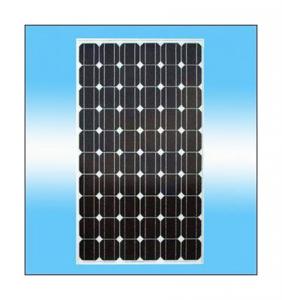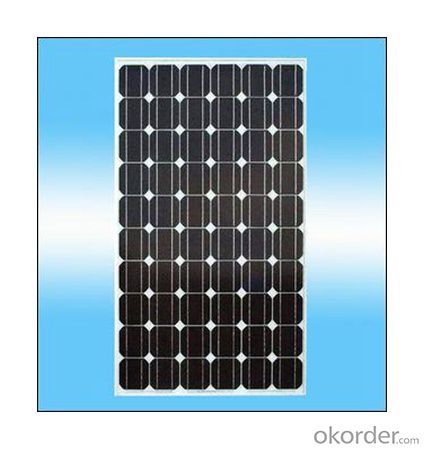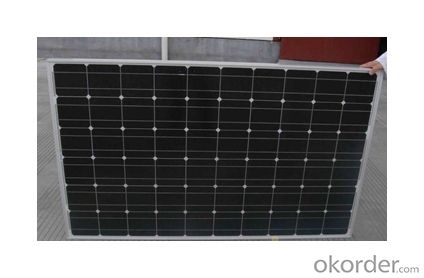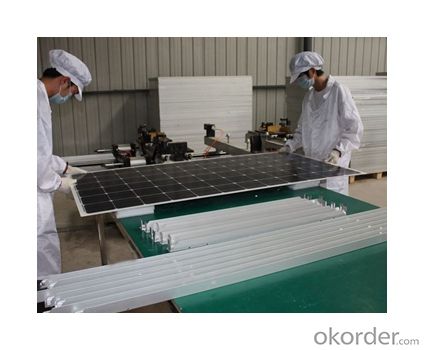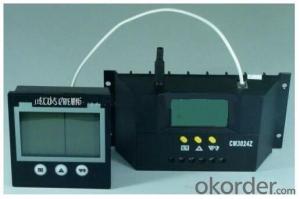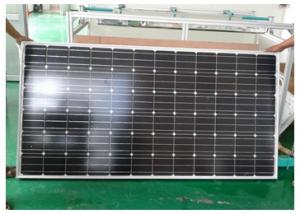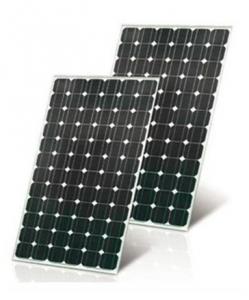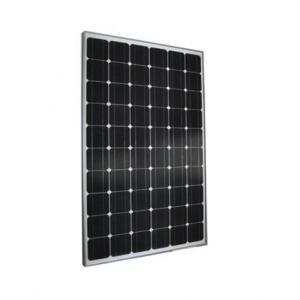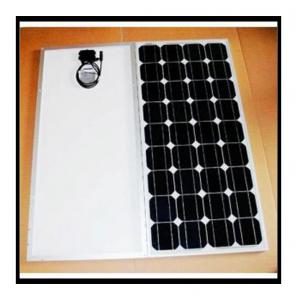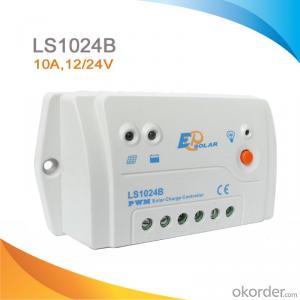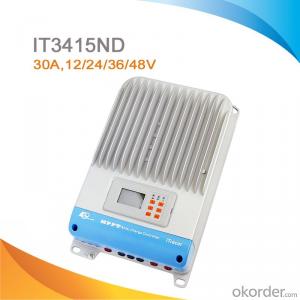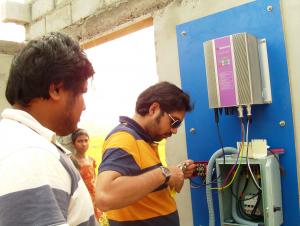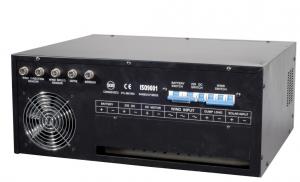Solar Controllers Wholesale:Mono-Crystalline 125*125 255W Solar Modules
OKorder Service Pledge
OKorder Financial Service
You Might Also Like
A solar panel, or photovoltaic PV module, is a device that is composed of solar cells and which, when struck by photons of light from the sun, generates an electrical current which can then be used to power DC or AC electrical loads.
We are one of the well known manufacturers and suppliers of an extensive range of solar module. Entire range of our products is well checked before offering to the clients to ensure that our products are free from any defect. Our products are delivered within the stipulated time frame. These solar module are available for outdoor applications. Our solar module are designed as per the set industry standards and can be bought at market leading Available with us in various dimensions, these modules are stringently tested under define parameters before the final dispatch by our professional who hold rich industry experience in this domain.
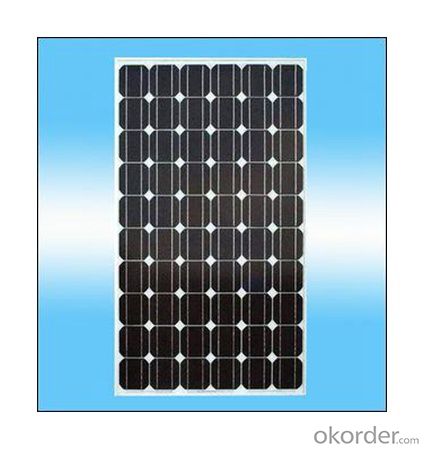
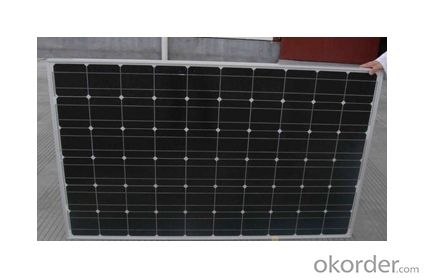
Electrical Characteristics
Max-pow (W) | 255 |
Max-Power Voltage (V) | 51.5 |
Max-Power Current (A) | 4.96 |
Open-Circuit Voltage (V) | 62.3 |
Short-Circuit Current (A) | 5.45 |
Mechanical Characteristics
Cable type, Diameter and Length | 4mm2, TUV certified, 1000mm |
Type of Connector | Compatible with MC4 plug |
Arrangement of cells | 6*12 |
Cell Size | 156*156 |
Dimension | 1580*1069*45 |
Weight | 20.5Kg |
Glass, Type and Thickness | High Transmission, Low Iron, Tempered Glass 3.2mm |
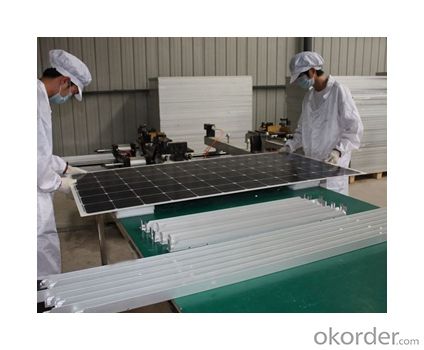
Features
Guaranteed positive tolerance 0/+5w ensures power output reliability
Strong aluminum frames module can bear snow loads up to 5400Pa and wind loads up to 2400Pa.
Excellent performance under low light environments (mornings evenings and cloudy days)
12 years for product defects in materials and workmanship and 25 years for 80% of warranted minimum power.
Certifications and standards: IEC 61215.
Manufactured according to International Quality and Environment Management System (ISO9001, ISO14100).
FAQ
Q: When do I need a charge controller and why?
The safest way to figure out if you need a charge controller is to take Battery Amp Hour Capacity and divide this by the Solar Panel max. power amp rating. If the quotient is above 200, you don't need a controller. If the number is less than 200 than you need a controller.
For example if you have a 100 amp hour battery and a 10 watt panel, you take 100 and divide it by .6 (600mA) and you get 166.6. Since this is less than 200 you need a charge controller. If you have a five-watt panel in the above example you take 100 divided by .3 (300mA) and you come up with 333.3. Since this is larger than 200 you do not need a charge controller. However you still need a blocking diode, to prevent the battery from discharging to the panel at night. So as a general rule of thumb you don't need a charge controller unless you have more than five watts of solar for every 100-amp hours of battery capacity.
Q: What is PV & how does it work?
PV stands for photovoltaic. Photo = Light and Voltaic = Electricity. A solar cell converts light to electricity.
A solar cell is made of silicon. Computer chips are made of this same material. Basically, when light strikes the surface of a solar cell some of it is absorbed into the silicon. This light energy bumps the electrons loose and causes energy to flow.
By packaging approximately 36 solar cells together a solar panel or a solar module is created. When you have more then one solar panels you create a solar array.
- Q: What is the size and weight of a typical solar controller?
- The size and weight of a typical solar controller can vary depending on the specific model and brand. However, most solar controllers are relatively compact and lightweight. They are typically small enough to fit in the palm of your hand and can weigh anywhere from a few ounces to a few pounds.
- Q: Can a solar controller be used for both off-grid and grid-tied systems?
- No, a solar controller cannot be used for both off-grid and grid-tied systems. Off-grid solar systems require controllers that can manage the battery charging and discharging process, while grid-tied systems typically do not have batteries and therefore do not require the same control functions. Different types of controllers are designed specifically for each system type to ensure optimal performance and safety.
- Q: Can a solar controller be used with a solar-powered commercial building?
- Yes, a solar controller can be used with a solar-powered commercial building. A solar controller manages and regulates the charging and discharging of solar batteries, ensuring optimal performance and preventing overcharging or damage. It is an essential component in solar power systems, including those used in commercial buildings, to maximize energy efficiency and ensure reliable power supply.
- Q: Can a solar controller be used with a solar-powered retail store?
- Yes, a solar controller can be used with a solar-powered retail store. A solar controller is a device that regulates the flow of electricity from the solar panels to the batteries or grid. It helps optimize the charging process and protects the batteries from overcharging. In a solar-powered retail store, a solar controller would be essential to efficiently manage the power generated by the solar panels and ensure a stable and reliable energy supply for the store's operations.
- Q: Can a solar controller be used in a solar-powered drone delivery system?
- Yes, a solar controller can be used in a solar-powered drone delivery system. A solar controller helps regulate and optimize the charging and discharging of the solar panels, ensuring maximum efficiency and protecting the battery from overcharging or over-discharging. In a solar-powered drone delivery system, the solar controller would play a crucial role in managing the power supply from the solar panels to the drone's battery, thus enabling sustained and reliable operation.
- Q: Can a solar controller be used with a 12V battery system?
- Yes, a solar controller can be used with a 12V battery system. The solar controller regulates the flow of energy from the solar panels to the battery, ensuring that the battery is not overcharged. It is compatible with 12V battery systems and helps optimize the charging process for maximum efficiency and battery life.
- Q: What is the maximum load power for a solar controller?
- The maximum load power for a solar controller is the maximum amount of power that can be safely drawn or used by the load or appliance connected to the solar controller.
- Q: Are there any disadvantages of using a solar controller?
- Using a solar controller has its drawbacks. Firstly, the cost of purchasing and installing a solar controller can be quite high. This can increase the overall expenses of setting up a solar power system, which might discourage certain individuals or businesses. Secondly, operating and maintaining solar controllers can be complex. They require proper programming and configuration to ensure optimal performance, as well as regular maintenance to keep them running efficiently. This may necessitate technical expertise or the hiring of professionals, resulting in additional costs. Furthermore, solar controllers may have limited compatibility with specific solar panels or battery systems. It is crucial to ensure that the solar controller is compatible with the particular components of the solar power system. Otherwise, it may malfunction or even cause damage. Lastly, solar controllers rely on sunlight for power generation. Therefore, they may not be as effective in areas with limited sunlight or during cloudy days. This can lead to decreased energy production and may require alternative power sources or energy storage solutions. In conclusion, while solar controllers offer various advantages in terms of regulating and optimizing solar power systems, they also come with certain disadvantages that should be taken into account before making a decision.
- Q: Is it necessary to have a solar controller for every solar panel?
- No, it is not necessary to have a solar controller for every solar panel. A solar controller is typically used to regulate the charging and discharging of batteries in a solar power system. If the solar panels are directly connected to the grid or are not being used to charge batteries, a solar controller may not be needed. However, if batteries are being used to store the solar energy, a solar controller is recommended to ensure proper charging and to protect the batteries from overcharging or damage.
- Q: What is the maximum charging capacity a solar controller can handle?
- The maximum charging capacity a solar controller can handle depends on its specifications and capabilities. It can range from a few amps to several hundred amps, depending on the size and type of the solar controller.
Send your message to us
Solar Controllers Wholesale:Mono-Crystalline 125*125 255W Solar Modules
OKorder Service Pledge
OKorder Financial Service
Similar products
Hot products
Hot Searches
Related keywords
